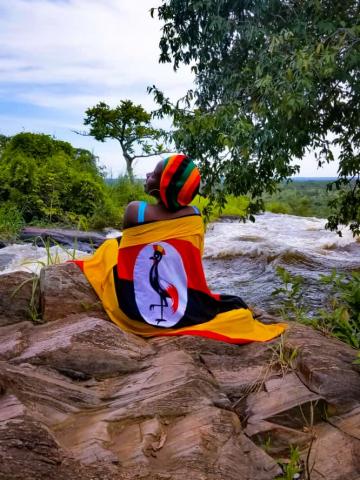Local Perspectives on Independence Day Celebrations
Submitted by wakaija on

Ordinary people have expressed mixed on the question of Uganda’s independence as the country marks 57 years of Independence.
The main Independence Day event has just come to an end in Sironko district, where President Yoweri Museveni was joined by his Zimbabwean counterpart, Emerson Mnangagwa.
President Mnangagwa, who replaced long-serving leader Robert Mugabe in November 2017, has been honoured with Uganda’s highest medal, the Most Excellent Order of the Pearl of Africa.
“On behalf of the people of Zimbabwe, I feel extremely honored by the award, not on me, but on my country. This is recognition of the journey we have traveled, as a people and country, to where we are,” said the 75-year-old leader as he accepted the medal.
He added that Uganda’s independence which was attained in 1962 inspired the Zimbabweans to continue fighting for theirs until they got it in 1980.
President Museveni used the occasion to summarize some of his achievements in his 33 years in power. “We have been able to achieve minimum economic recovery, build a strong army and start the process of development and address the issue of social services while the population increases to 44 million from 14 million people in 1986,” the president said.
But back in Kampala, some of the people Journalism@Mak engaged shared differing perspectives on the significance of the Independence Day. While some say Uganda’s independence is only in name, others still hold the day in very high esteem.
Macline Asiimwe, an elderly woman, says she celebrates Independence Day for the love of her country. “Uganda is not independent yet but for the love of my country I celebrate it,” she says.
Asiimwe added that Uganda is dependent on foreign aid from countries like USA and Britain and has too many foreign investors. “But there is some hope for total independence if we get a better leader,” she adds.
“Fahad Muganga, a student at Makerere University, explains that what happened in 1962 was a mere change from the colonial rulers to local rulers. The rest, to him, remained the same. He said: “We accused the colonialists of stealing our resources, marginalizing us, dehumanizing us and dividing us along religious and tribal lines. But now that we are free from all that, aren't we seeing the same things happening under our current leaders?”
Muganga added: “I can't deny the fact that the independence of Uganda was and is a milestone. However, our post-independence leaders have progressively made independence less familiar.”
Muganga’s view is shared by Benson Mayanja, also a student at Makerere University. To him, independence is much more than “a mere indication on a world map that Uganda is an independent country and sovereign entity.”
He explains that independence goes beyond and hinges on implementation of policies and ability to pave one’s way concerning different aspects in life. “Citizens are frustrated and find it hard to live above a dollar a day, so they find no reason to celebrate independence, I think the people that are up there in offices in government might find achievements because it's what relates to them,” he says.
Macxzzon Muhwezi, the chairman of the ruling NRM party at Makerere University, says the Independence Day ought to be celebrated today more than any other time in the history of Uganda. He said: “To me Uganda is independent and the day should be more celebrated today than it was in the past because in the past celebrations were more parochial. They were on the basis of identity, tribe and status. The celebrations now are cosmopolitan and inclusive.”
About the apparent apathy by the youth, Muhwezi attributes it to what he calls a gap of patriotism and nationalism.
Courtesy Photo
- 815 reads
